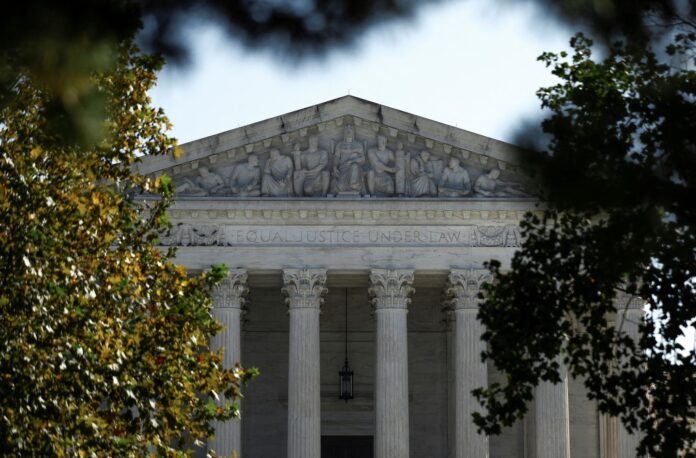The members of the court’s “originalist majority” — Chief Justice John G. Roberts Jr. and Justices Samuel A. Alito Jr., Amy Coney Barrett, Neil M. Gorsuch, Brett M. Kavanaugh and Clarence Thomas — have shown themselves to be courageous and principled. Can they also prove themselves capable of redressing the two most pressing areas where the Supreme Court has long allowed government at every level — as have lower federal courts and state courts — to ignore or rewrite basic constitutional structures and guarantees?
The nation’s founders never sanctioned, and no amendment has ever authorized, a vast administrative state wielding enormous power over citizens. In two cases this term, the court will have the opportunity to pare back the bureaucratic blob that weighs on every U.S. citizen. In so doing, the justices would also finally retire the absurd idea that bureaucrats should receive any deference at all in interpreting their own powers.
In a case involving the Consumer Financial Protection Bureau, argued Oct. 3, the court will decide whether the CFPB’s funding scheme is unconstitutional, and perhaps dismantle this “agency,” which is a scar on the constitutional order. In Loper Bright Enterprises v. Raimondo, another case to be heard this term, the court will decide whether to overrule its own 1984 decision in Chevron U.S.A., Inc. v. Natural Resources Defense Council. That ruling invented the idea of “Chevron deference”: a principle compelling federal courts to defer to a government agency’s interpretation of an ambiguous or unclear statute that Congress delegated to the agency to administer.
If the court declares the CFPB to be not merely a bridge too far in the expansion of the administrative state in its organization and funding, that would likely mark the point at which the overstretched rubber band of unaccountable federal power snaps back. With such a ruling, the court would have an opportunity to affirm first principles, binding Congress to the construction of new bureaucracies in the decades ahead. A direct, forceful restatement of the idea that legislators must not delegate to the executive branch their core responsibility would be most welcome.
As would the judicial strangulation of Chevron deference, an idea repugnant to that of a free people capable of voting out representatives responsible for the failure of any agency to do its job. Neither the framers, nor Abraham Lincoln at the “second founding,” best articulated at Gettysburg, ever intended for unelected bureaucrats to wield vast power over the citizenry.
The idea of “administrative expertise” has never been in more disrepute than now, after the serial fiascos of the coronavirus era, during which rules imposed by experts devastated the U.S. economy and education system. The courts are supposed to show deference to government officials who have, in all but name, permanent sinecures? Kill this perverse doctrine. It has no place in a free society.
Of equal importance, and perhaps even greater urgency given the nation’s housing crisis, is the case of Sheetz v. County of El Dorado, likely to be argued early in 2024. As the Pacific Legal Foundation explains in its “friend of the court” brief, the justices will now have a chance to tell states that their bureaucracies and land-use laws illegally require property owners to surrender their constitutional rights to obtain development permits. The court is not likely to sympathize with bureaucrats who have disregarded previous rulings requiring the application of “nexus” and “proportionality” considerations.
But the court should go further than a limited ruling in Sheetz. Revisit those earlier rulings and give them brighter, sharper teeth. If the court’s originalists are determined to restore the power of the Fifth Amendment’s directive that private property cannot “be taken for public use, without just compensation,” now is the time to show it.
An excellent primer on the “takings clause” can be found at the Constitution Center’s website. What the center does not note, because it does not quarrel with “settled law,” is that the Supreme Court went off the constitutional rails almost a century ago in regard to the explicit protection of private property from government taking. (Such takings, in my view, include government regulations that harm, if not destroy, the value of private property without just compensation.)
In that long-ago case, Village of Euclid v. Ambler Realty Company, the court failed to repudiate the concept of government “zoning authority.” Thus a modern scourge was born, as bureaucrats increasingly denied private owners the right to determine the best use of their own property.
The toll on the country’s wealth has been incalculable, with the most obvious, malign secondary impact today: the nationwide housing shortage. The Supreme Court’s duty to uphold the Constitution as written, ratified and amended has never been more urgent.



